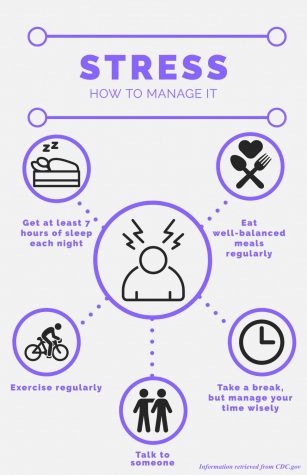Mental health resources remain available during pandemic
While any one change can bring about a bout of stress, the numerous changes that people have been dealing with since COVID-19 started spreading in the United States have caused quite the strain. While Black Hills State University students may feel alone in their mental health struggles being exacerbated due to the ongoing pandemic, they are not.
Mallory Kloucek, Ending the Silence Coordinator for the South Dakota chapter of the National Alliance on Mental Illness, says that stress during this time is common. People experiencing stress and anxiety, however, have not been using the resources that NAMI provides at the level that many would expect.
“There is some information out that the majority of people are still in that ‘survival mode’ or just haven’t processed yet the effect this will have,” Kloucek said. “We are anticipating a jump in the number of individuals [reaching out to NAMI support resources] over the course of the year.”
People also may not realize that they are experiencing abnormal levels of stress. Some signs of stress can include “headaches, trouble sleeping, jaw pain, changes in appetite, frequent mood swings, difficulty concentrating and feeling overwhelmed,” according to NAMI resources. Stress in small doses can be healthy, but longterm stress means these signs can have a negative affect on your overall health.
If you do notice increased levels of stress are starting to affect your life, NAMI recommends a number of ways to lower stress levels. “These include:
- Accept your needs. Recognize what your triggers are. What situations make you feel physically and mentally agitated? Once you know this, you can avoid them when it’s reasonable to and to cope when you can’t.
- Manage your time. Prioritizing your activities can help you use your time well. Making a day-to-day schedule helps ensure you don’t feel overwhelmed by everyday tasks and deadlines.
- Practice relaxation. Deep breathing, meditation and progressive muscle relaxation are good ways to calm yourself. Taking a break to refocus can have benefits beyond the immediate moment.
- Exercise daily. Schedule time to walk outside, bike or join a dance class. Whatever you do, make sure it’s fun. Daily exercise naturally produces stress-relieving hormones in your body and improves your overall physical health.
- Set aside time for yourself. Schedule time to walk outside, bike or join a dance class. Whatever you do, make sure it’s fun. Daily exercise naturally produces stress-relieving hormones in your body and improves your overall physical health.
- Eat well. Eating unprocessed foods, like whole grains, vegetables and fresh fruit is the foundation for a healthy body and mind. Eating well can also help stabilize your mood.
- Get enough sleep. Symptoms of some mental health conditions, like mania in bipolar disorder, can be triggered by getting too little sleep.
- Avoid alcohol and drugs. They don’t actually reduce stress: in fact, they often worsen it. If you’re struggling with substance abuse, educate yourself and get help.
- Talk to someone. Whether to friends, family, a counselor or a support group, airing out and talking can help.”
NAMI has a number of programs that are free and available online, including community discussion groups that are fully virtual to reduce the risk of exposure to potential COVID-19 cases.
Kloucek said that these resources, which can be found at namisouthdakota.org, are actively being updated “to make sure all of our programs are available online to help anyone who is seeking out resources.”

More information can be found by calling the NAMI Helpline at 800-950-NAMI. Those experiencing a mental health crisis can reach crisis counselors by texting ‘NAMI’ to 741741.

